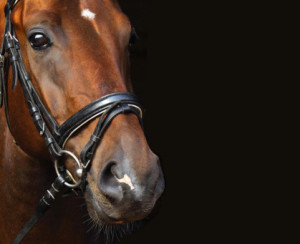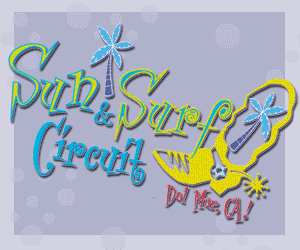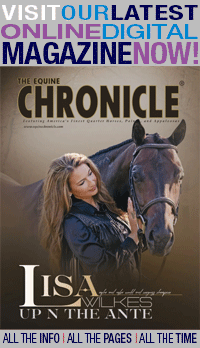Mouth and Tongue Injuries in Horses
Click here to read the complete article242 – May, 2016
By Heather Smith Thomas
 Horses sometimes experience mouth or tongue injuries, such as punctures from sharp objects, an accident with a bit, something jammed between the teeth or a broken tooth. A common injury is being kicked in the jaw or incisors when horses live in groups. This may result in fracture of a tooth or laceration of gums, cheeks or surrounding tissue, or may cause nerve damage that leaves the tongue and/or lip drooping on that side.
Horses sometimes experience mouth or tongue injuries, such as punctures from sharp objects, an accident with a bit, something jammed between the teeth or a broken tooth. A common injury is being kicked in the jaw or incisors when horses live in groups. This may result in fracture of a tooth or laceration of gums, cheeks or surrounding tissue, or may cause nerve damage that leaves the tongue and/or lip drooping on that side.
“Often the horse owner panics if there’s blood,” says Melinda Freckleton, DVM, a veterinarian in Virginia. “It often looks like there’s more blood than there really is, because it’s mixed with saliva. The horse drools more because of the taste of blood and may try to spit it out rather than swallow it,” she says.
“Some mouth injuries are hidden, however, and can fool us. We may do a colic exam or try to discover why a horse is uncomfortable or isn’t eating. If there’s something wedged between the teeth or impaled in the tongue, it may not be found until more common problems have been ruled out and the veterinarian takes a look farther into the mouth,” says Freckleton. This may entail using a speculum to hold the horse’s mouth open for deeper inspection.
The signs may be as subtle as the horse not eating, or doesn’t seem right, or is vaguely uncomfortable. One veterinarian tells of a horse that was treated for ulcers for 30 days because the horse was not eating properly, and grinding its teeth. When the owner brought the horse in to the clinic, the veterinarian looked in the mouth to check the teeth and saw part of a plastic pop bottle lodged between the teeth and the cheek.

Horses are notorious for finding ways to injure themselves. A fall may result in landing on the nose, splitting a lip or chipping/fracturing a tooth. “Young colts love to play mouth games with each other and this can result in injuries,” says Freckleton. Curious horses chew on all kinds of things. Injuries can be caused by a horse chewing on a bucket and getting the handle snap hooked onto the corner of the mouth and tearing it.
TONGUE INJURIES
“There are many ways tongue injuries can happen, including rough use of a bit, or tying with reins and the horse pulling back,” says Freckleton. A horse wandering loose with a bridle, dragging the reins, may step on a rein and jerk his head up, cutting the tongue with the bit. “Occasionally a trainer lets a young horse wear the bit for awhile in the stall, to get used to the feel of a bit. If the horse snags the bit on something, this could cause severe injury.”
Dr. Debra Powell (Ohio State University) has seen several horses with punctured tongues. “One occurred because someone was trying to deworm the horse with a metal cannula designed for use in cattle. It was accidentally jammed into the side of the horse’s mouth, puncturing the tongue.”
A horse may accidentally bite his tongue if he falls or suffers a blow or kick that closes the teeth on the tongue. A cut tongue can be difficult to suture and the repair may come apart. You can’t immobilize the tongue like you might immobilize the sutured skin on a foot or leg with a cast or bandage. “Mouth tissues are constantly bathed in saliva, which also tends to break down sutures,” says Freckleton. “The motion of the tongue itself may undo suture knots. We try to suture a cut tongue, and there are many successes, but there are also failures,” she says.
Click here to read the complete article242 – May, 2016










